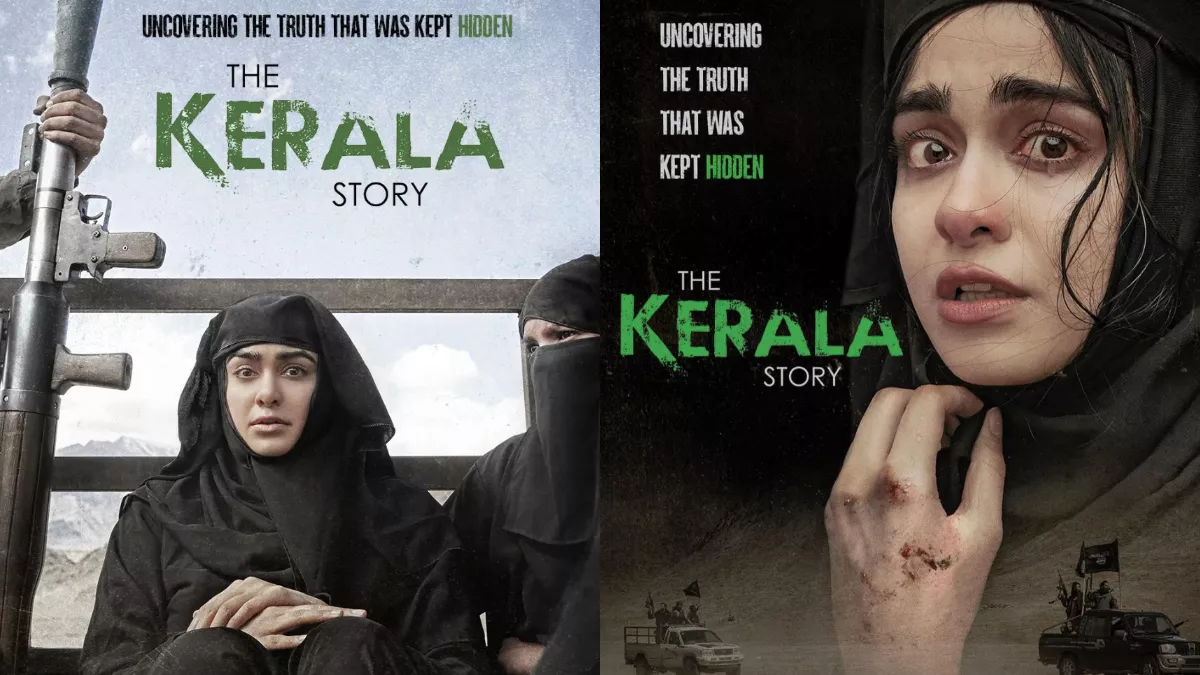
Don’t blame us later: TMC tells Oppn after SC stays Bengal’s ban on ‘The Kerala Story’

Following the Supreme Court’s order to permit the screening of The Kerala Story in West Bengal, the TMC stated on Thursday (May 18) that if any issues arise as a result of the film’s exhibition, the opposition should not hold the ruling party responsible.
The Trinamool Congress maintained that the ban on the screening of the film was imposed apprehending tensions among communities.
The Kerala Story, starring Adah Sharma, was released in theatre halls on May 5. Directed by Sudipto Sen, the film claims that women from Kerala were forced to convert to Islam and recruited by the terror group Islamic State (IS).
Earlier in the day, the Supreme Court stayed the West Bengal government’s order prohibiting the screening of The Kerala Story.
Also Read: SC stays WB govt’s ban on ‘The Kerala Story’, asks TN to provide security to moviegoers
The apex court also said it is the duty of the state government to maintain law and order as the film has been granted certification by the Central Board of Film Certification (CBFC).
The TMC said the state government would abide by the court order, but apprehensions of communal tensions among communities drove the state’s decision.
“The state government had taken the decision as it apprehended that there could be tensions if the film was screened. Now the honourable Supreme Court has passed an order. The state government would abide by the court’s order. The opposition should not try to project it as a victory or a defeat of the state government,” state minister and TMC leader Shashi Panja said.
Senior TMC leader and party spokesperson Kunal Ghosh said, “As the Supreme Court passed an order, the film will be screened again. Now if there are issues due to the film screening, the opposition should not blame us.
Also Read: The Kerala Story crosses Rs 100 crore-mark at domestic box office
The BJP, however, welcomed the apex court’s order staying the West Bengal government’s prohibition on the screening of the movie, claiming that the court has exposed the ruling TMCs communal politics.
Suvendu Adhikari, the Leader of Opposition in the Bengal Assembly, urged Chief Minister Mamata Banerjee to prioritize law and order over moral policing. Adhikari emphasised that the people of West Bengal should have the freedom to choose what they embrace or reject.
BJP’s IT Cell chief, Amit Malviya, also praised the Supreme Court’s decision, criticising Banerjee for siding with radical elements and banning the film instead of supporting the well-being of women who may have been influenced by radical organizations.
“We welcome the Supreme Court’s order staying the ban by the West Bengal government on the screening of the film The Kerala Story. The TMC government banned the film to send out a message to a particular community. The TMC is trying to create tensions among communities through such a decision. It has exposed the communal politics of the ruling party,” senior BJP leader Rahul Sinha said.
A bench headed by Chief Justice D Y Chandrachud directed the producer to put a disclaimer in the movie by 5 pm on May 20 on the claim that 32,000 Hindu and Christian women were converted to Islam.
Also Watch: The Kerala Story is doing roaring business at the box office | Kerala Story
West Bengal Chief Minister Mamata Banerjee had on May 8 ordered an immediate ban on the screening of The Kerala Story in the state to avoid “any incident of hatred and violence”, a senior state government official had said.
West Bengal was the first state to ban the film.
Senior BJP leader and actor Rudranil Ghosh said it is high time that the TMC should learn the lessons of the apex court.
“Such a decision wont help the TMC consolidate minority votes ahead of the panchayat or Lok Sabha polls. No other state has banned the film, and the TMC government wants us to believe that there will be problems if the movie is screened here. It is high time that they learn the apex courts lessons,” Ghosh said.
Senior CPI (M) leader Tanmoy Bhattacharya accused the TMC government of giving “free publicity” to the film by banning it.
“This film is propaganda against the Left Front government in Kerala. But still, we don’t believe in banning any film. The TMC prohibited the movie and provided it with free publicity,” he said.
(With agency inputs)

